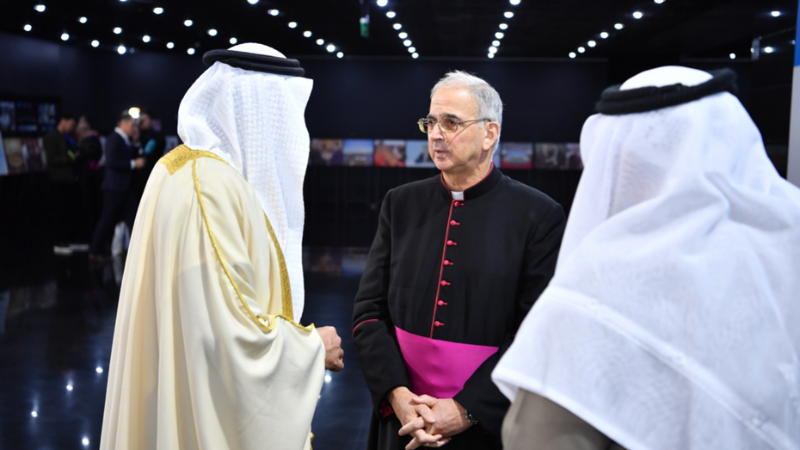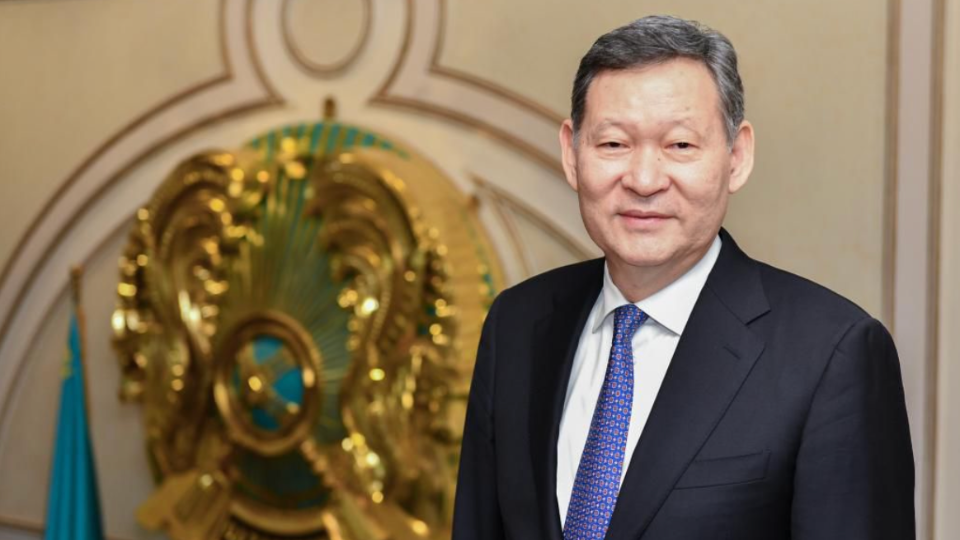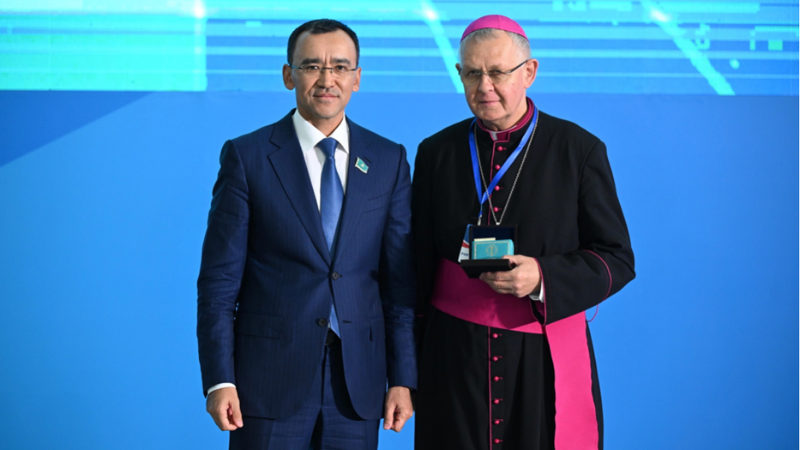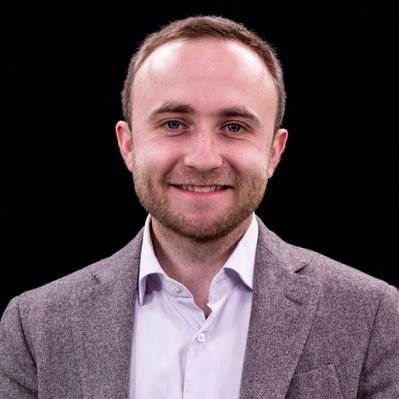
Pope Francis consistently raises his voice to advocate for peace on nearly every possible public occasion. During a General Audience in Saint Peter's Square on October 18, Pope Francis proclaimed, "I urge believers to take just one side in this conflict: that of peace," referencing the Israel-Gaza conflict. His call resounds worldwide, underscoring the Holy See's strong commitment to cultivating peaceful solutions on the global stage.
The Congress of Leaders of World and Traditional Religions in Kazakhstan is a platform upon which the Holy See engages in interreligious dialogue and advocates for peace. Herein, representatives from diverse faiths come together; Christians, Muslims, Jews, and leaders of other religions sit around a single table. Some of them would otherwise never have met, and they engage in official dialogues and informal exchanges during breaks, exemplifying the potential of interreligious diplomacy.

Msgr. Khaled Akashesh, Head of the Vatican's Office for Relations with Islam, speaking at the XX session of the Secretariat of the Congress of Leaders of World and Traditional Religions, summarized Pope Francis' message that he gave during the congress last year in ten key points, starting with the first point: "peace." He explained that peace is the aim of the journey, originating from fraternity, evolving through the battle against injustice and inequality, and solidifying through solidarity. Msgr. Akashesh urged, "We must bear witness to peace, preach peace, and implore peace."
The XXI session of the secretariat this year drew participants from 23 countries across the globe to assess the progress made in implementing the declaration signed at the "VII Congress of Leaders of World and Traditional Religions" last year. The assembly, graced by Pope Francis' presence and endorsement, underscores the Holy See's dedication to peace.
Within the first and second points of the declaration, participants reiterated their unwavering commitment to peace, pledging to persist in their regular efforts to promote peace, interreligious dialogue, and spiritual and moral values.
In alignment with these sentiments, President of Kazakhstan, Qasym-Jomart Toqaev, in a letter to the committee's participants this year, emphasized the pivotal role of religious leaders in shaping a new international security paradigm by championing values like morality, kindness, and humanism.

In an interview with EWTN Vatican, Deputy Head of the Secretariat of the Congress of Leaders of World and Traditional Religions, Kairat Ermekovich Umarov, highlighted the Catholic Church's strategic role in this initiative. He said, "The Catholic Church emphasizes the search for common values and principles among different religions, promoting mutual understanding and cooperation."
Furthermore, he noted that "The Catholic Church actively engages in discussions on this issue and seeks solutions" and "supports dialogue not only at the religious level but also at the cultural level."
Pope Francis' visit in 2022 bore tangible results for the Catholic Church in Kazakhstan. Mr. Umarov shared, "Following the visit, the Republic of Kazakhstan and the Holy See signed an agreement. This agreement ensures that members of the Catholic Church appointed to serve in Kazakhstan for an extended period will be granted permanent residence permits."

Tomash Bernard Peta, Archbishop of the Metropolitan Archdiocese of Saint Mary in Astana, in an interview with EWTN Vatican, noted that the Catholic Church has been an integral part of the congress since its inception in 2003. He emphasized that "the congress is not a platform for theological debates. Instead, it creates an environment characterized by religious freedom and cooperation in Kazakhstan."
Kazakhstan stands as an exemplar of different religions living together in harmony. As Mr. Umarov conveyed, "the principle of 'unity in diversity' is fundamental for us. Currently, representatives of more than 130 ethnic groups live in harmony and accord in Kazakhstan, and approximately 4,000 religious associations representing 18 confessions are present in our country. This diversity is our invaluable strength and asset."
In conclusion, Mr. Umarov emphasized, "Peace and cooperation is possible if we are united and willing to work for it. It depends on each of us to bring it forward."

Alexey Gotovskiy serves as a journalist, producer, and manager at the EWTN Vatican Bureau. Born in the former Soviet Union, he holds a graduate degree in Church Communications from the Pontifical University of the Holy Cross and has produced over 200 episodes of EWTN "Vaticano," covering the life of the Universal Church.








